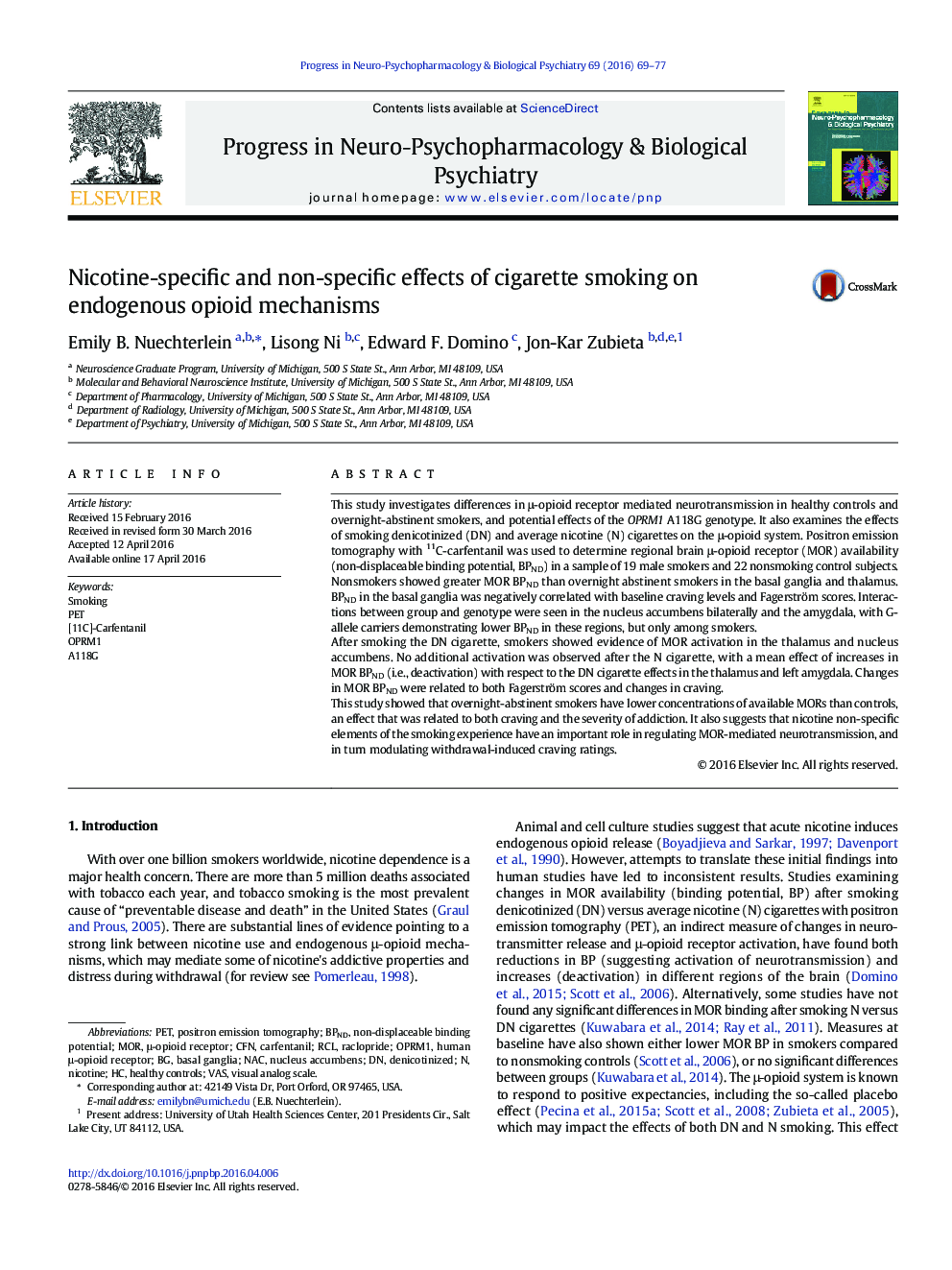| Article ID | Journal | Published Year | Pages | File Type |
|---|---|---|---|---|
| 2564686 | Progress in Neuro-Psychopharmacology and Biological Psychiatry | 2016 | 9 Pages |
•Nonsmokers showed greater MOR binding potential than overnight-abstinent smokers.•Higher craving and nicotine dependence were associated with decreased MOR binding.•A118G genotype differentially affected MOR binding in smokers vs. nonsmokers.•Denicotinized cigarette smoking resulted in endogenous opioid release.
This study investigates differences in μ-opioid receptor mediated neurotransmission in healthy controls and overnight-abstinent smokers, and potential effects of the OPRM1 A118G genotype. It also examines the effects of smoking denicotinized (DN) and average nicotine (N) cigarettes on the μ-opioid system. Positron emission tomography with 11C-carfentanil was used to determine regional brain μ-opioid receptor (MOR) availability (non-displaceable binding potential, BPND) in a sample of 19 male smokers and 22 nonsmoking control subjects.Nonsmokers showed greater MOR BPND than overnight abstinent smokers in the basal ganglia and thalamus. BPND in the basal ganglia was negatively correlated with baseline craving levels and Fagerström scores. Interactions between group and genotype were seen in the nucleus accumbens bilaterally and the amygdala, with G-allele carriers demonstrating lower BPND in these regions, but only among smokers.After smoking the DN cigarette, smokers showed evidence of MOR activation in the thalamus and nucleus accumbens. No additional activation was observed after the N cigarette, with a mean effect of increases in MOR BPND (i.e., deactivation) with respect to the DN cigarette effects in the thalamus and left amygdala. Changes in MOR BPND were related to both Fagerström scores and changes in craving.This study showed that overnight-abstinent smokers have lower concentrations of available MORs than controls, an effect that was related to both craving and the severity of addiction. It also suggests that nicotine non-specific elements of the smoking experience have an important role in regulating MOR-mediated neurotransmission, and in turn modulating withdrawal-induced craving ratings.
